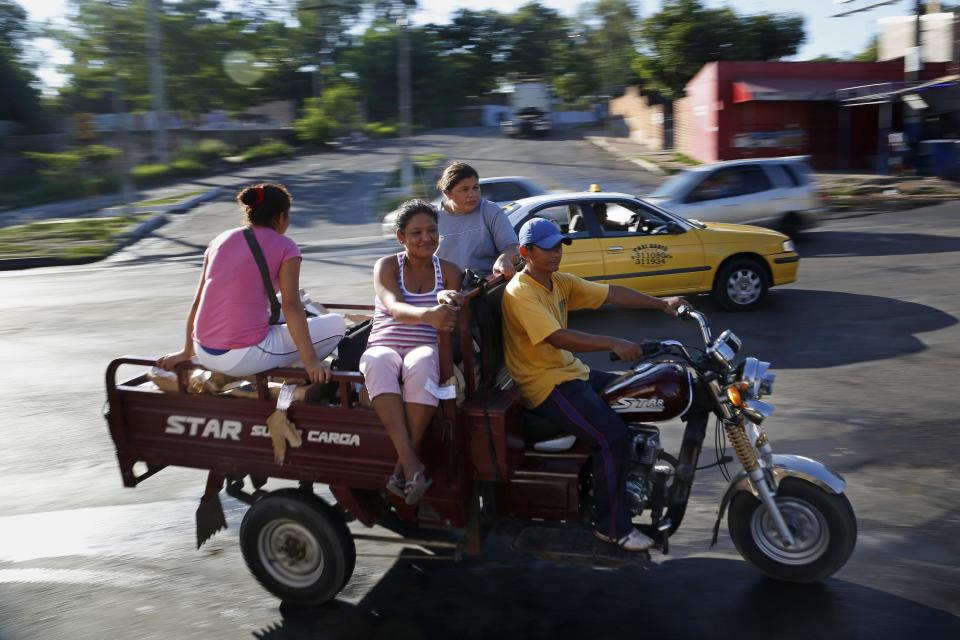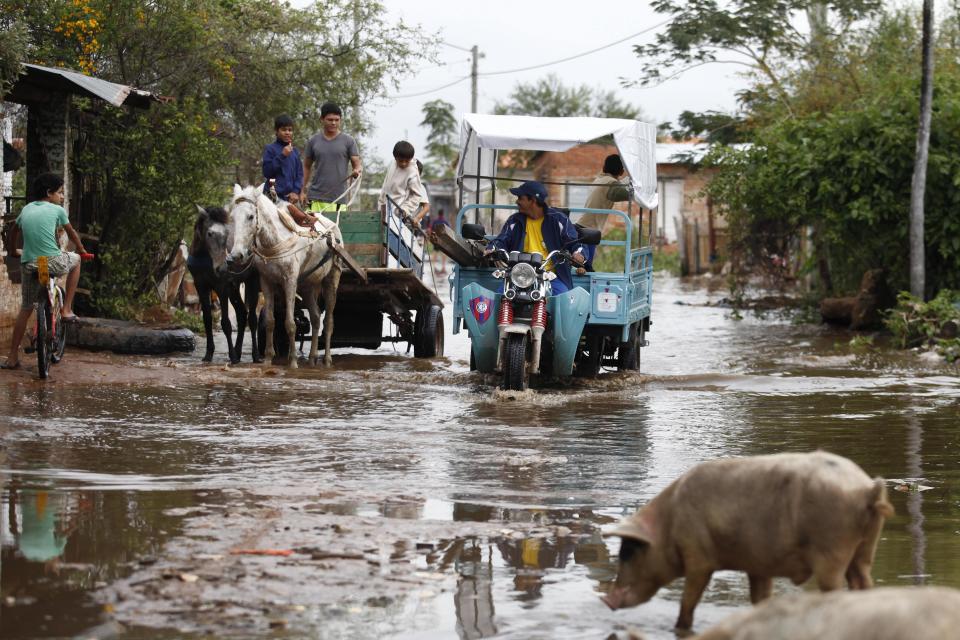Paraguay phases out horse-drawn junk wagons
ASUNCION, Paraguay (AP) — Hundreds of horses clop through the blistering-hot streets of Paraguay's capital hauling heavy loads of junk, often for a dozen hours a day. It's a tradition that goes back as long as anyone can remember.
Within weeks, however, many will be spending their remaining days at a farm sanctuary far from the city.
A city ordinance that takes effect in mid-February bans the use of horse carts by the small army of people who scavenge cans, cardboard and plastic from garbage bins.
Belgian-born businesswoman Maris Llorens is helping by giving the horses sanctuary at one of her ranches. She is offering cart owners $350 per each horse as a first installment toward buying three-wheeled moto-carts.
She and other animal rights activists have long worried about the haggard horses, often ill-fed and sometimes mistreated, that trudge through Asuncion, where daytime summer temperatures average about 95 degrees Fahrenheit (35 degrees Celsius).
The Leopard company that makes many of the carts is offering credit to impoverished junk collectors with no collateral so they can slowly pay off the $4,000 price.
"I've been driving horse-carts for twenty years and I use what I earn to support my horse and my family," Antonio Martinez said in Guarani, the indigenous language of Paraguay. "To earn $10, I must work 14 hours a day. I hope to earn more with moto-cart."
City councilman Hugo Ramirez, who helped organize the program, said he was able to take a census of about 800 horse carts, though "there are many others who do not want to be registered."
Some cart owners have already given up their horses for the faster motorized carts, which can also haul more cargo and promoters hope to have another 100 horses off the streets by the end of March under the swap program.
Ramirez said he expects others will gradually comply with the new law.
The measure isn't likely to make the city any quieter. The old carts roll along with just the clatter of hooves and the creak of axles. The new ones are equipped with loudspeakers that blare offers to pay for plastic bottles, cardboard, old electrical goods or bits of iron.
Officials in other Latin American countries have adopted similar programs. Bogota, Colombia, banned horse carts as of Jan. 1 after offering owners a subsidy to buy a small truck or launch a small business.





